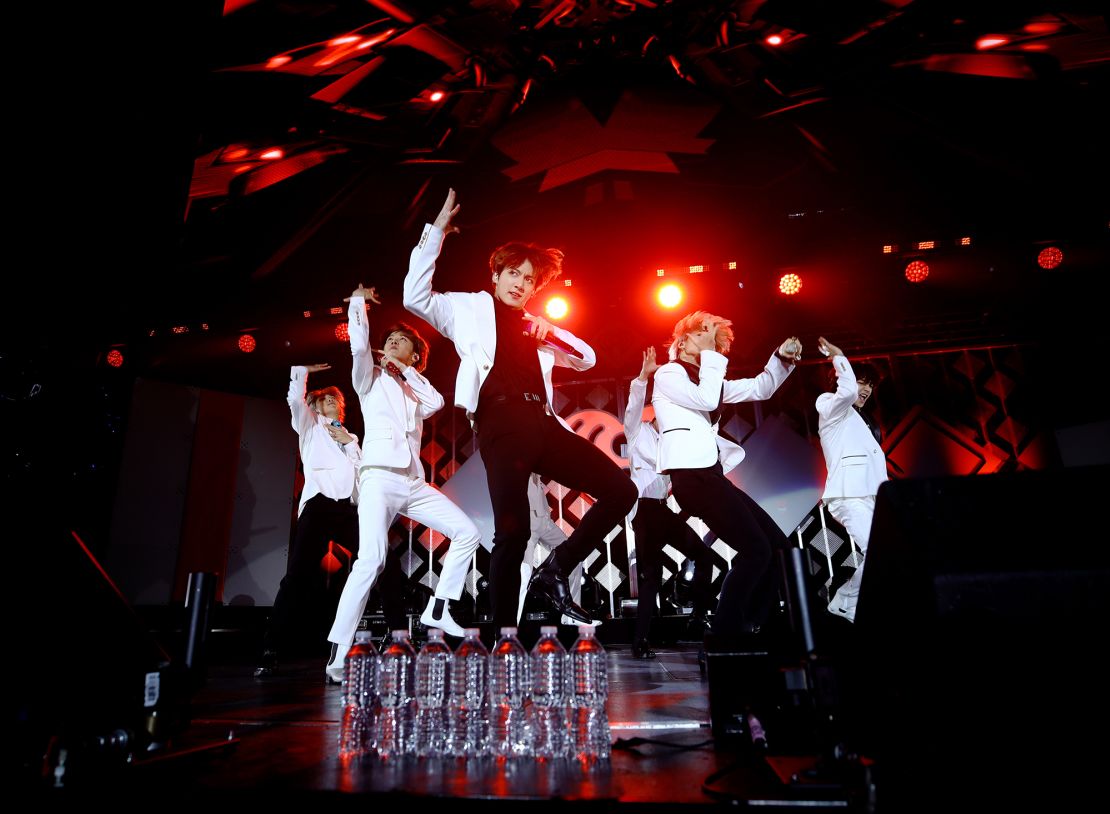K-pop fans are the latest casualty of China’s crackdown on celebrity culture.
Weibo, China’s heavily censored version of Twitter, announced Sunday it has suspended 21 fan accounts dedicated to various K-pop artists due to “irrational star-chasing behavior.”
The accounts, which have been suspended for 30 days, are dedicated to members of popular South Korean pop acts includingBTS, Blackpink, EXO and IU. The temporary bans come after a fan account dedicated to BTS artist Jimin was suspended.
A notice on the Jimin fan clubaccount reads:“The account is temporarily banned from posting due to violating Weibo’s community regulations.” Weibo added that some blog posts have also been deleted.
Weibo said it “firmly opposes such irrational star-chasing behavior and will deal with it seriously,” and promises to “promote rational star-chasing activities and regulate community order.”

In recent weeks, the wider entertainment industry has fallen into the crosshairs of the ruling Communist Party, as President Xi Jinping’s clampdown on private business has broadened out beyond its initial targets in the tech sector.
Zhao Wei, one of China’s most prominent actresses, saw her presence mostly scrubbed from the country’s internet overnight. Her fan page on Weibo was shut down. Movies and television shows she starred in — some going as far back as two decades ago — were taken off streaming platforms, with her name also removed from the cast lists.
While individual Chinese celebrities have been targeted by the government before, the recent crackdown is wider in scope and harsher in severity, with their presence mostly wiped clean from the country’s internet.
Authorities have also taken aim at celebrity fan culture popular among China’s youth. The Cyberspace Administration of China (CAC) recently announced 10 measures to “clean up” what it called the “chaos” of celebrity fan clubs, including banning any attempt to rank celebrities based on popularity, and tightening regulations around talent agencies and fan club accounts. A day earlier, popular video platform iQiyi canceled all idol talent shows, calling them “unhealthy.”
On Chinese social media, some comments said the crackdown was reminiscent of the Cultural Revolution, a decade of political and social turmoil between 1966 and 1976 during which arts and culture were restricted to promoting party propaganda.
The Communist Party, which views popular culture as a key ideological battleground, has long kept the entertainment sector on a tight leash with stringent censorship. But it has also encouraged its growth, supporting domestic films and shows intended to help win the Chinese public over from Hollywood and other foreign productions.
Under Xi, the party has grown ever more obsessed with ideological and cultural control. The dazzle of stardom and the frenzy of fandom are increasingly viewed as a dangerous, pernicious influence — especially on the country’s youth.
— CNN’s Beijing bureau contributed to this article.
























